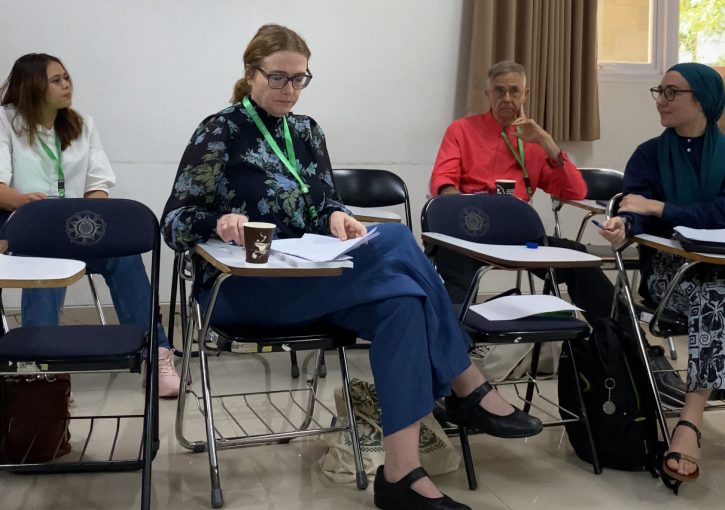
“I decided I was willing to be a leader in this struggle. And my beloved husband approves of this.” is a sentence from Bronwyn Anne Beech Jones’ presentation quoting Siti Manggopoh at the AAS-in-ASIA forum on July 10, 2024. Siti Manggopoh from Sumatra, was one of the women who resisted Dutch colonialism in Indonesia. Dutch colonialism in Indonesia, which lasted for many years, has had a significant impact on Indonesian society until this day. Not only did it leave behind doctrines that are still unconsciously passed on today, but Dutch colonialism in Indonesia also created complicated pieces of history.
Seeing the influence of Dutch colonialism in Indonesia opens up interesting discussions in academic forums. One of them was the AAS-in-ASIA event held at the Universitas Gadjah Mada. This year’s AAS-in-ASIA had a special forum discussing Dutch colonialism in Indonesia, the panel “Decolonial Memory Work: Between Indonesia and the Netherlands (2)”. This panel consisted of two panellists, Bronwyn Anne Beech Jones and Kate McGregor. Both panellists in this panel carried the theme of women’s struggle in a decolonial frame, but with different perspectives.
The War Women Leader: Talking about Siti Manggopoh
“Join the war” is foreign to women because of the gender dichotomy that divides the world into masculine and feminine. If join the war is foreign, then leading a major war against the colonisers is certainly not an easy thing for women to do. Nonetheless, Siti Manggopoh broke those boundaries and marched at the forefront to lead the war in the land of Manggopoh.
Bronwyn Jones, in collaboration with Siti Fatimah from Padang State University, researched Siti Manggopoh’s struggle in their article ‘Reconstructing the Life of Mande Siti’. In their research, they found that Siti Manggopoh fought the colonialists without fear because she felt that the colonialists had destroyed the customs that had existed in the community for generations. Her love for her customs, culture and family outweighed her fear of the colonialists.
Discovering hidden family history
Struggle is not just about war. It can also be about rediscovering lost family history. This kind of struggle is no less difficult because many families were torn apart by Dutch colonialism in Indonesia. Katharine McGregor showed her interest in this issue when she presented the results of her research with Ana Dragojlovic entitled “The Journey of Belonging: Remembering and Decolonising Gendered Memories of Dutch Colonialism in Indonesia’.
In their research, Katharine and Ana analysed a novel by Lala Bohang and Lara Nuberg entitled ‘The Journey of Belonging: a herstory between time and space’. This research focuses on exploring Lala and Lara’s journey to discover their complicated family history due to Dutch colonialism in Indonesia. It not only shows the tracing of family history, but also looks at how cultural acculturation occurs in the family.
It is interesting to study Dutch colonialism in Indonesia from different perspectives. This is because there are still many gaps in the long history of Dutch colonialism in Indonesia. Research in this field not only carries the spirit of decoloniality, but also has the potential to find pieces of history that have been forgotten.
Author: Laillia Dhiah Indriani
Photo: Laillia Dhiah Indirani
SDG 5 (gender equality)
